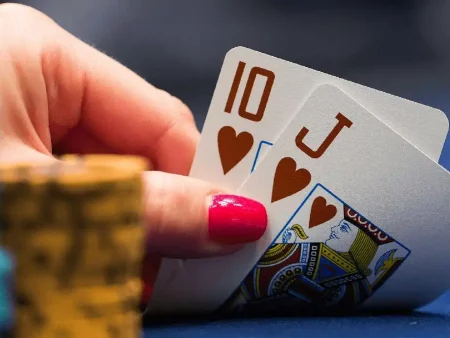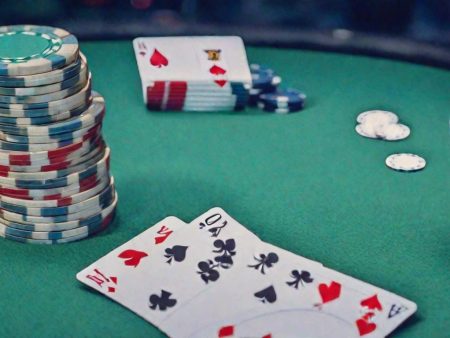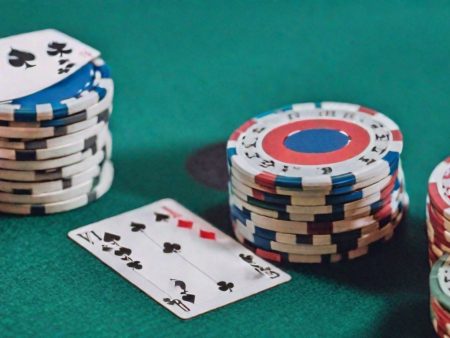Many players come across the term “bad beat” in poker. It refers to a situation where a player with a strong hand, who seemed almost certain to win, unexpectedly loses to an opponent with very little chance of success. These moments are an inherent part of the game and can trigger a whirlwind of emotions — from disappointment to confusion.
A Bad Beat Example
Imagine you’re playing and you have a pair of kings (KK) — a strong starting hand. Your opponent has a pair of twos (22), which is considered a weak hand. You’re confident in your victory, the stakes rise, and then the community cards are revealed. On the river, the last card, a two, appears. Suddenly, your opponent has three twos (222), which beats your pair of kings.
This situation can occur even in the best casinos, where you’re playing for real money. A player, certain of their victory, faces the shock of losing despite holding a strong hand. This is a bad beat.
Read also: What does the cutoff mean in poker?
Why Does This Happen?
When you decide to play poker for real money, it’s essential to understand that such situations are inevitable. Bad beats aren’t the result of mistakes; they occur because of several factors inherent to the game itself.
- Luck. Poker is a game where luck plays a huge role. Each hand is the result of a random shuffle of the deck. You can’t predict which cards will come your way or which ones your opponent will receive. That’s why even with a strong hand, victory isn’t always guaranteed.
- Poker Mathematics. Even if your hand seems solid, there is always a chance your opponent will complete a stronger hand. Understanding the math of poker is vital in assessing the risks at each stage of the game.
- Unpredictability. Sometimes, hands that seem weak can unexpectedly win. Poker isn’t just about the cards you have; it’s about how they interact with the community cards. This adds excitement and unpredictability to the game.
- Player Psychology. Psychological factors also play a role in bad beats. Confidence in victory can lead to overly aggressive betting, increasing the risks. In high-stakes games, players are willing to risk more, even with a low chance of success, which can also result in unfortunate situations.
How to Deal with Bad Beats? Poker is not just a game of cards but a game of emotions. When you encounter a bad beat, it’s crucial to remember that it’s not a mistake or poor decision. It’s simply part of the game. To avoid dwelling on every setback, focus on the long-term picture and on improving your skills and strategies.
Positive Aspects of Bad Beats
Even though bad beats are generally seen as negative events, they have some positive aspects.
- Experience and Learning. Each bad beat is an opportunity to reflect on your play. You can assess whether your actions were correct and how you can improve your strategy in the future. This will help you become a more experienced and confident player.
- Building Psychological Resilience. A bad beat can be an excellent exercise for your mindset. Learning to cope with disappointment, not succumbing to emotions, and staying calm are essential skills for poker success.
- Game Excitement. Bad beats make the game more dynamic. Without these moments of surprise, poker would become too predictable and dull. These events add drama and excitement to the game.
- Uncertainty and Thrill. The essence of poker lies in its unpredictability. Without bad beats, the game would lack the tension that keeps players on the edge of their seats. It’s the unexpected moments that make the game engaging.
Read also: What does cap mean in poker.
How to Avoid Tilt?
Tilt is a state of emotional distress that often follows several unlucky hands. In this state, players lose control and start making poor decisions, which only worsens the situation. Here are some tips for avoiding tilt:
- Stay Calm. If you feel yourself getting anxious or frustrated, take a break. Step away from the table, relax for a bit, and then return with a clear mind.
- Don’t Try to Get Revenge. If you’ve lost a large pot, resist the urge to “get back” at the game by playing more aggressively. Stick to your strategy and play sensibly.
- Set a Loss Limit. Establish a maximum amount you’re willing to lose and stop playing once you reach it.
- Talk to Friends. Sometimes, simply talking to someone about your feelings can help alleviate negative emotions.
- Relaxation Techniques. Meditation or deep breathing can be helpful for reducing stress, both during and after the game.
- Take a Break if You Feel Tilted. If you sense you’re emotionally overwhelmed, it’s best to take a break. Continuing to play in that state can lead to further losses.
Bad beats are a part of poker, and learning to accept them is an essential skill for any player. Instead of getting discouraged by setbacks, focus on improving your skills, playing with a strategy, and making well-informed decisions. In the long run, this approach will lead to success. And remember, poker is not just about winning; it’s about how you handle the tough moments as well. Want to become a more successful player? Read the best gambling strategies and apply them to your bets!
FAQ: What is a bad beat in poker?
What is a bad beat in poker?
A bad beat refers to a situation where a player with a strong hand loses to an opponent who has an unlikely or inferior hand that improves on the later streets.
It’s a term often used to describe an unfortunate outcome, especially when a player is heavily favored to win.
Why do players complain about bad beats?
Players often complain about bad beats because it can be frustrating to lose a hand they were clearly winning.
It can feel unfair, especially when the opponent's hand improves unexpectedly, causing a loss after all the player’s skill and strategy.
Is a bad beat a common occurrence in poker?
Yes, bad beats happen relatively often in poker, especially in games with community cards where hands can change drastically.
Poker is a game of chance, and even the best hands can lose due to the randomness of the cards.
How should you handle a bad beat in poker?
Handling a bad beat involves staying calm and not letting frustration affect your decision-making.
It’s important to focus on the long-term strategy, as one unfortunate hand does not define your overall success.
Can a bad beat affect poker strategy?
A bad beat can temporarily alter your mindset, but it’s important to stick to your strategy.
While it may feel tempting to change your approach, maintaining a consistent and disciplined strategy is key to long-term success.
What is the difference between a bad beat and a cooler?
A bad beat involves losing with a strong hand to an unlikely improvement by an opponent.
A cooler, on the other hand, occurs when two strong hands collide, and one is dominated by the other, such as a set losing to a straight flush.
Is there a way to avoid bad beats in poker?
There’s no way to completely avoid bad beats, as they are part of the game.
However, by playing solid poker, managing your bankroll, and avoiding emotional decisions, you can minimize their impact on your overall game.






